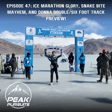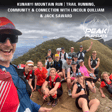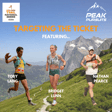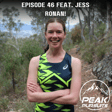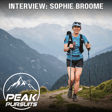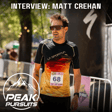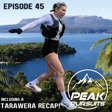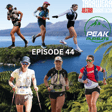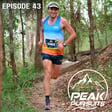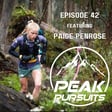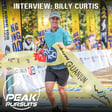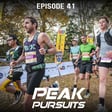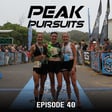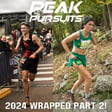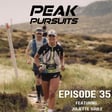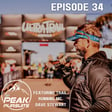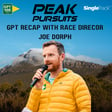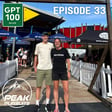
Episode 36: Sim’s Chiang Mai 100km Race Recap, Vlad’s Race Plot Twist, and Dealing with the Heat!
Welcome to Episode 36 of Peak Pursuits, your ultimate podcast for everything trail running in Australia. This week’s episode is hosted by Sim Brick, Brodie Nankervis, and Vlad Ixel with the team talking through a major race plot twist from Vlad, Sim’s 100km race recap from Thailand, and the prize money available at BackYard Ultras before diving into all the usual segments and results.
Start - 27:00 :- Vlad’s Plot Twist and Brodie Becomes a Cyclist
We kick off with Vlad giving us a rundown of where he is at in training before he chucks in the most random race choice you could possibly imagine for early next year. Then hear how Brodie has done a quick switch from runner to cyclist and his plan to take on the Festive 500 as his achilles heals.
27:00 - 1:10:00 :- Sim’s 100km Race Recap
We then get a deep dive into the lead in and race day from Sim for everything that went dow in Thailand, before Sim answers listener questions about heat acclimatisation, race day cooling strategies, strength training and more.
1:10:00 - End :- Race Results + Backyard Ultra Prize Money Chat
We then cover a few Aussie races that went down over the weekend:
6 inch trail marathon (WA) https://my.raceresult.com/306427/results#1_0B9E46
Adelaide Trail Runners Series 2 (SA) https://www.webscorer.com/race?raceid=375449
The Last Legend (VIC) https://trailsplus.com.au/LL2024/
And finish off with Brodie posing the question of why Back Yard ultras are offering up more and more prize money in Australia.
Thanks for tuning in to Peak Pursuits! Connect with us on Instagram @peakpursuits.pod to share your thoughts, questions, and your own trail stories. Until next time, keep hitting the trails and chasing those peak pursuits!
Sim: @theflyingbrick_
Brodie: @brodienank
Vlad: @vladixel
Music from #Uppbeat (free for Creators!):https://uppbeat.io/t/mood-maze/trendsetter
License code: K08PMQ3RATCE215R
